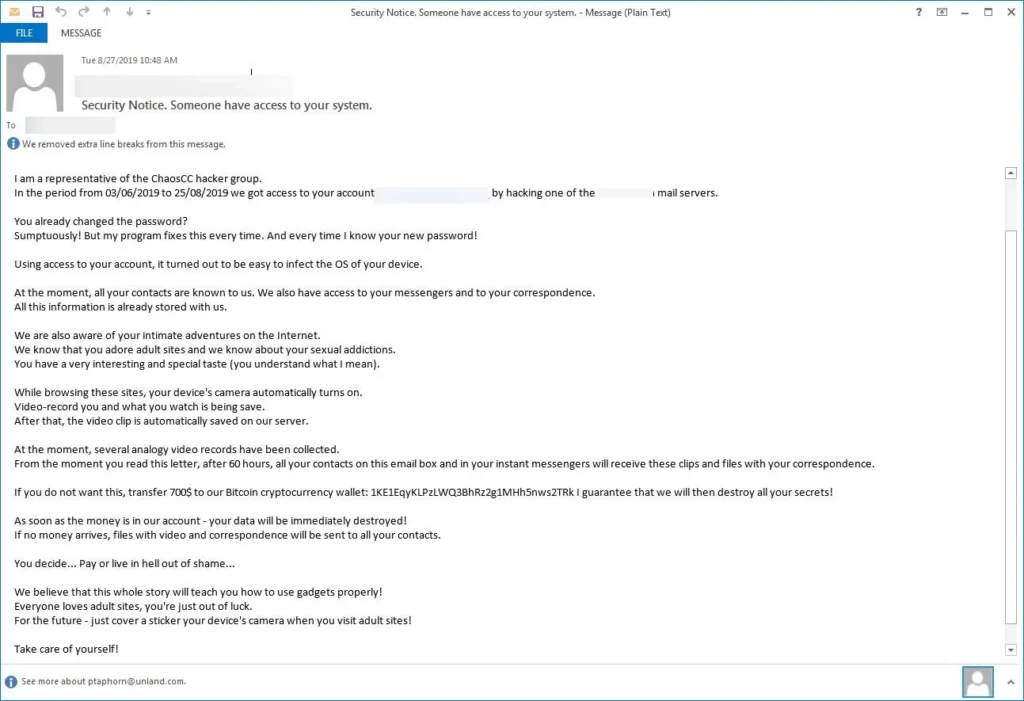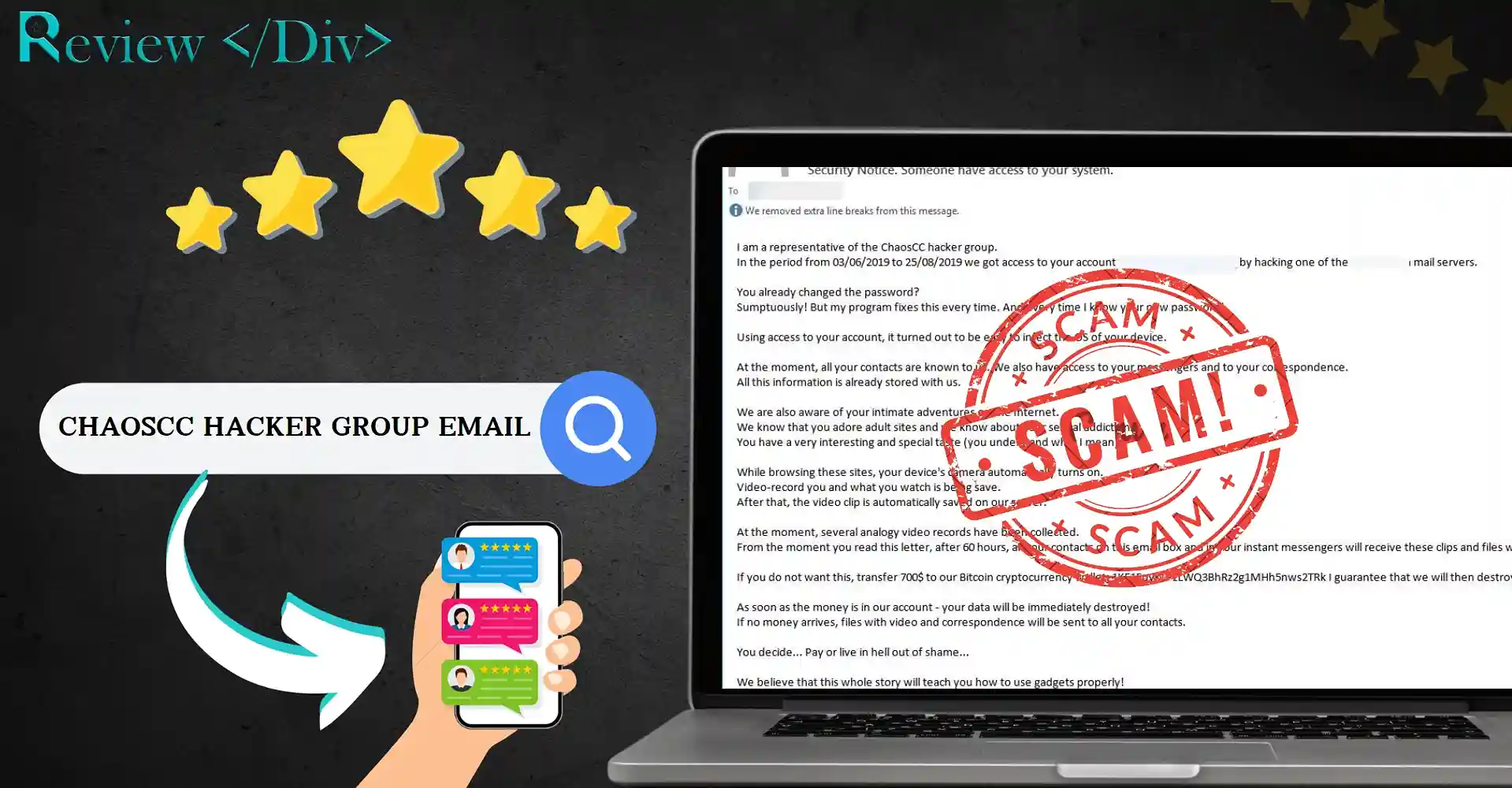Nowadays, cybercriminals are constantly developing new methods to use unsuspecting individuals. One such scheme that has gained fame is the ChaosCC hacker group email scam.
This particular scam targets victims by using fear and pressure, threatening to expose compromising information.
In this post, we will explore the ChaosCC Hacker Group Email Scam, how this scam works, and how to protect yourself from these scams.
ChaosCC Hacker Group Email Scam Overview
The ChaosCC hacker group email scam is a type of cybercrime that uses fear and intimidation to extort money from unsuspecting individuals. Labeled as “sextortion,” this scam involves sending threatening emails that falsely claim the recipient’s computer has been compromised and that explicit videos of them have been recorded while visiting adult websites.

The scammers demand a ransom, typically around $700 in Bitcoin, with a deadline to pay within 60 hours, threatening to send the fabricated video to the victim’s contacts if the payment is not made.
The name “ChaosCC” is likely a reference to the well-known Chaos Computer Club, a legitimate hacker organization in Germany.
The emails contain personal details, such as passwords obtained from previous data breaches, which are used to make the threats appear more credible and to increase the likelihood of the victim complying with the ransom demands.
How the ChaosCC Hacker Group Email Scam Work?
The ChaosCC scam unfolds through a series of carefully crafted tactics designed to use the victim’s emotions and fears. Here’s how it operates.
1. Initial Contact
The victim receives an unsolicited email claiming that their email account has been hacked. The email might include an old password that the scammers obtained from a past data breach, making the threat appear legitimate.
2. Threats and Lies
The email alleges that the scammers have used malware to gain access to the victim’s computer, enabling them to record a compromising video via the victim’s webcam while they were on adult websites. They also claim to have stolen personal information, including contact lists.
3. Ransom Demand
The email demands a ransom, usually around $700 in Bitcoin, and threatens that if the payment is not made within 60 hours, the supposed video will be sent to all of the victim’s contacts. The email includes a Bitcoin wallet address for the payment.
4. Psychological Pressure
The scammers exploit fear and urgency by using personal details, such as passwords or usernames, to make their threats seem more credible. They rely on the emotional response of the victim, hoping that the fear of embarrassment will lead them to pay the ransom.
How to Protect Yourself from These Scams?
Protecting yourself from the ChaosCC hacker group email scam and similar threats involves a combination of awareness, education, and security measures. Here are several steps you can take to safeguard against these scams.
Do Not Respond: If you receive a sextortion email, do not engage with the sender. Delete the email immediately and report it to the appropriate authorities, such as the Federal Trade Commission (FTC) in the United States.
Change Your Passwords: If the email includes a password you recognize, update your passwords for any accounts associated with that password. Use strong, unique passwords for different accounts to enhance security.
Enable Two-Factor Authentication: Implement two-factor authentication (2FA) on your accounts whenever possible. This adds a layer of security, making it more challenging for unauthorized individuals to gain access.
Install Antivirus Software: Use reputable antivirus software to protect your devices from malware and other threats. Regularly update the software and run scans to detect and remove any potential infections.
Cover Your Webcam: Consider using a physical cover for your webcam when it’s not in use. This can help prevent unauthorized access and alleviate concerns about being recorded without your knowledge.







